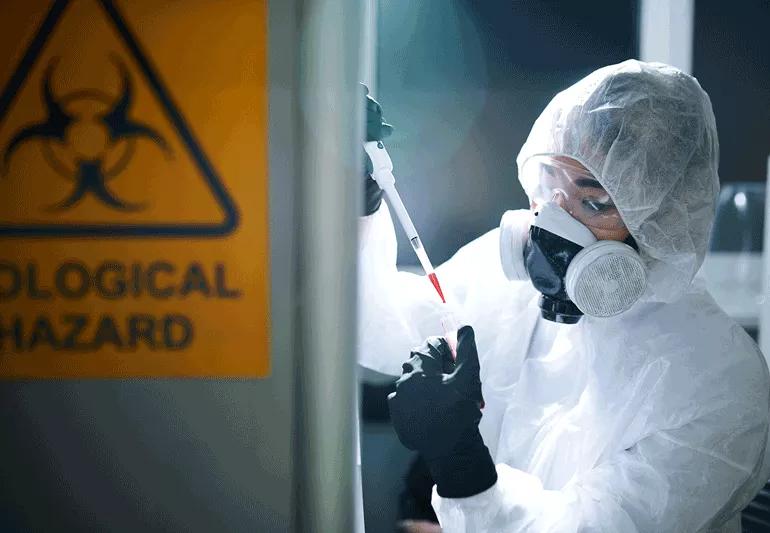New treatments are emerging

Ebola virus disease, also called Ebola hemorrhagic fever or just Ebola, is a serious disease that often causes death.
Advertisement
Cleveland Clinic is a non-profit academic medical center. Advertising on our site helps support our mission. We do not endorse non-Cleveland Clinic products or services. Policy
While it’s rare in the U.S., it is common in parts of sub-Saharan Africa, like the Democratic Republic of Congo, where an ongoing outbreak that started in December 2018 was declared a global health emergency by the World Health Organization.
Since the initial virus strain was identified in 1957, six Ebola virus strains have been described, four of which are known to cause disease in humans, says Steven Gordon, MD, Chairman of the Department of Infectious Disease.
Scientists think the virus is transmitted from wild animals such as fruit bats, monkeys, gorillas, chimpanzees and antelope to humans. Humans become infected by coming into direct contact with fluids or organs from infected animals or other infected humans.
Unlike measles or the flu, Ebola is not spread through air, water or food. It’s spread through exchange of bodily fluids such as blood, urine, feces, saliva, vomit, sweat, semen and breast milk.
A person infected with Ebola is not contagious until symptoms appear. And for the infection to spread, the body fluids must come in direct contact with a second person.
Transmission can also occur through direct contact with surfaces, items and materials such as bedding or clothing that have been contaminated with the body fluids of a sick person.
Advertisement
Until recent years, there were no vaccines or treatments for Ebola. Treatment consisted of addressing symptoms by giving fluids and oxygen and treating other infections that occur, Dr. Gordon says. There is now a vaccine that is thought to be highly protective against spread of the virus being tested in the current outbreak. According to the World Health Organization, two experimental treatments for Ebola (including antibody and antivirals) have also shown promise in preventing death from the disease.
“Risk of acquisition of Ebola is directly related to exposure to a known person with Ebola or spending time in an area with ongoing Ebola transmission,” Dr. Gordon says.
So family, friends and healthcare workers who have had close contact with an Ebola virus patient are at the highest risk of getting sick. Contact with infected wildlife also can put someone at risk.
If a person has symptoms and has been in an area known to have Ebola virus disease, they should seek medical care immediately.
Early symptoms include:
Other symptoms may develop later, including:
Early symptoms look like many other illnesses, so knowing whether the ill person has been exposed to infected blood or fluids is important.
Prompt medical care is essential to improving the rate of survival and to control spread of the disease.
Advertisement
Learn more about our editorial process.
Advertisement

Most recommended precautions center around minimizing bruising or swelling

Even one drink can have an impact on your cognitive function leading to slurred speech, blurred vision and impaired memory

Understand who may (and may not) benefit

Lorem ipsum dolor sit amet. Et odio Quis vel ipsam omnis eum alias deleniti et placeat impedit non voluptas galisum hic autem enim et cupiditate aliquid. Est beatae quidem non facilis autem ut commodi nisi aut tempore rerum et dolores voluptatem cum enim optio id sapiente quasi. Ad laboriosam officiis 33 cupiditate sequi ea voluptatum consectetur qui necessitatibus voluptate et quasi doloremque et facere explicabo quo explicabo officia

Seeking help through therapy can be an important step in improving your quality of life when you have UC

Type 2 diabetes isn’t inevitable with these dietary changes

Applying a hot or cold compress can help with pain